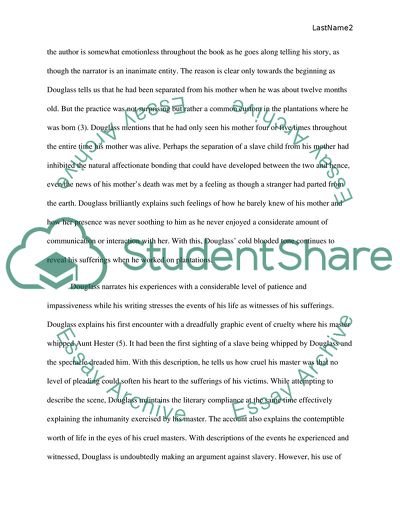Cite this document
(Narrative of the Life of Frederick Douglass Essay Example | Topics and Well Written Essays - 1500 words - 5, n.d.)
Narrative of the Life of Frederick Douglass Essay Example | Topics and Well Written Essays - 1500 words - 5. https://studentshare.org/history/1829004-term-paper
Narrative of the Life of Frederick Douglass Essay Example | Topics and Well Written Essays - 1500 words - 5. https://studentshare.org/history/1829004-term-paper
(Narrative of the Life of Frederick Douglass Essay Example | Topics and Well Written Essays - 1500 Words - 5)
Narrative of the Life of Frederick Douglass Essay Example | Topics and Well Written Essays - 1500 Words - 5. https://studentshare.org/history/1829004-term-paper.
Narrative of the Life of Frederick Douglass Essay Example | Topics and Well Written Essays - 1500 Words - 5. https://studentshare.org/history/1829004-term-paper.
“Narrative of the Life of Frederick Douglass Essay Example | Topics and Well Written Essays - 1500 Words - 5”. https://studentshare.org/history/1829004-term-paper.


